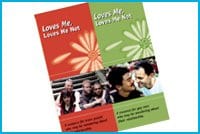Of all the myths around same-sex partner abuse one of the most prevalent is commonly referred to as “mutual battering.”
“It’s one of the biggest myths,” says Jesmen Mendoza, a counsellor who runs a same-sex partner abuse response program at David Kelley Services, adding that just because two partners both hit each other doesn’t make it consensual. “It’s punitive and it’s meant as control of one partner over another.”
Another myth is that rates of abuse in queer relationships are significantly lower.
“The percentages of partner abuse that are being recorded are roughly the same as in the straight community,” says Mendoza. “Credible, random research out there shows that the general accepted number is roughly about one in four, or about 25 percent of our relationships, would have someone being abusive to their partner.”
According to criteria used at David Kelley Services abuse can be physical, psychological, emotional, sexual and spiritual. It can involve harassment, making threats of harm or disclosure of personal information, intimidation, ridiculing and humiliation, restriction of freedom, stalking, keeping one isolated from family and friends and destruction of property. People enduring abusive relationships have been found to be more likely to report suffering from serious health problems such as heart disease, hypertension, depression and anxiety and engage in behaviour such as substance abuse and unprotected sex.
“Research says that partner abuse is in the top three health concerns for our community,” says Mendoza. “Ironically enough, I don’t think we get as much funding as other issues that affect our community — HIV/AIDS or addiction issues.”
Jane Walsh, an intake worker with the Same-Sex Domestic Violence Team at the Children’s Aid Society, agrees that there isn’t enough funding to meet the needs of queers dealing with relationship abuse.
“There is counselling available in particular agencies,” says Walsh, “but many of these agencies have waiting lists and in terms of counselling for and by queer people, it’s very limited.”
Walsh and Mendoza are both part of the Coalition Against Same-Sex Partner Abuse (CASSPA), a volunteer-driven coalition of groups including the Children’s Aid Society, David Kelley Services, Central Toronto Youth Services’ Pride and Prejudice Program and the 519 Church Street Community Centre’s Anti-Violence Project. The group has just launched a series of pamphlets drawing attention to abuse among queer and trans people.
“With the pamphlets we wanted to show that people have choices and rights,” says Walsh. “They can look to the police for protection and be more confident when they encounter systems that they will be treated with respect and dignity. Also there are a lot of people in relationships that often have to decide, ‘Is this bad enough for me to leave?’ and the pamphlets try to address that.”
The pamphlets, paid for through a grant from the Ministry of the Attorney General’s Ontario Victim Services Secretariat, target four groups — gay men, lesbians, bisexuals and trans people — with each pamphlet written by members of the demographic it’s targeting.
Pat Durish, a clinician with David Kelley LGBTQ and HIV/AIDS Services, headed the three-year same-sex partner abuse project that spawned the pamphlets.
“More than anything else we wanted to raise visibility on the issue… both within the community and among service providers,” says Durish, “and to give support to people in abusive relationships and help them negotiate some of the confusion so they can access support and let them know support is out there.”
Durish says she hopes the project will help people to think differently about their relationships.
“There’s reluctance on the part of the community and individuals to admit that abuse happens and to see it for what it is when it does happen.”

 Why you can trust Xtra
Why you can trust Xtra


